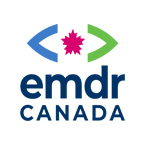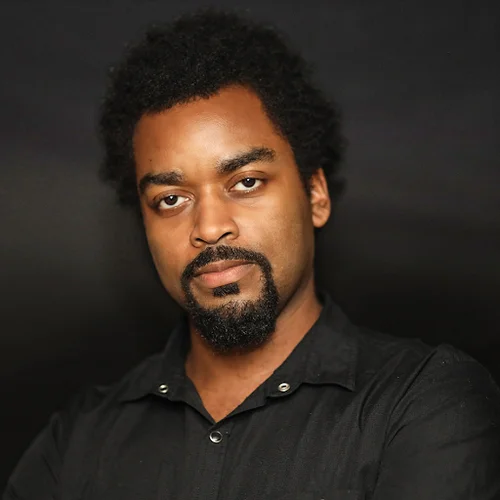“Raising our racial consciousness allows people of all cultural backgrounds to be more fully equipped to stop the trauma of racism. Let us have courage, be open-minded, and move toward a better future.”
These are among the opening words in David Archer’s book, Anti-Racist Psychotherapy: Confronting Systemic Racism and Healing Racial Trauma. Inspired by the work of Frantz Fanon, Resmaa Menakem, and Dr. Joy DeGruy, Archer is a Montreal-based EMDRIA Approved Consultant who is determined to address the mental health consequences of racial trauma. As a registered social worker and marriage and family therapist, he pulls on his diverse expertise to address fundamental truths that often go unspoken. His work is a clear call to action, both to his fellow therapists and to society at large –oppressive power structures are causing real harm, and we are all responsible for creating a better future.
In conversation, Archer offers countless examples of how this oppression plays out both in the world and in the therapist’s office. The LGBTQ client who spends their first few sessions trying to determine whether they can safely come out to their therapist. Indigenous peoples unable to access culturally responsive and accessible mental health support in their communities. And the impossible-to-ignore fact that, despite Canada’s remarkable diversity, Archer is is our country’s first Black EMDRIA Approved consultant.
Archer was often the only Black student-therapist while studying in university, a travesty that fueled his commitment to change. Through writings and workshop presentations, Archer is a thought leader paving the way for future generations. His development of the Rhythm and Processing framework, based on mindfulness, Africentric principles, and memory reconsolidation based approaches is a testament to the innovative contributions that racially diverse Canadians bring to the field of EMDR therapy specifically and psychotherapy in general.
Press the image below to watch David Archer discuss the genesis of his book “Anti-Racist Psychotherapy.”
View this post on Instagram
Creating an Anti-Racist Future for EMDR Therapy: “We all need to do our part.”
Archer’s work has been groundbreaking, both in Canada and around the world. Among his many achievements, he is responsible for developing the Rhythm and Processing framework, which specifically addresses the mental health consequences of racial trauma. He also had a profound impact on EMDR education, with one of his articles recently named as required reading for all new basic trained EMDR therapists in EMDRIA’s Go With That Magazine. EMDR professionals may have seen him as a plenary speaker at EMDRIA’s 2020 conference, or as a presenter at our own EMDR Canada 2024 conference. In addition, he was a keynote speaker for the University of Michigan’s Dr. Martin Luther King Jr. symposium in 2024 and a plenary speaker for the ISSTD’s annual conference in 2023.
Although his contributions are vast, Archer is quick to point out that we are all responsible for creating and implementing anti-racist therapeutic systems and approaches. He invites EMDR Canada, and every therapist across the country, to do what they can to address the real issues facing our profession head-on.
His books are a helpful starting point to do just that.
While Anti-Racist Psychotherapy is perhaps Archer’s most well-known volume, more recent books like Racial Trauma Recovery and Transforming Complex Trauma are also must-reads for any therapist who is wondering “How can I help those who are impacted most by a society that’s not always friendly to them?”
It’s a question that every therapist in Canada should be asking with conviction. Canada is a diverse country, with racial minorities making up nearly one-quarter of our population. Add in other socially constructed identities (such as gender, sexuality, disability), and all therapists will undoubtedly interact with many clients that society is “not always friendly to.” Archer’s work invites therapists to learn, discuss, and embrace anti-racist practices that respond to the discriminatory realities in our society – and within ourselves.
The Value of Anti-racist EMDR Consulting
In addition to reading anti-racist books and attending relevant trainings, Archer invites therapists to get real about how they are experiencing racism, including facing their own internalized prejudices and fears. According to Archer’s observations, some white therapists can face challenges in fully engaging with the visceral realities of racism due to social conditioning that demands the suppression of emotions. This conditioning can lead to a dissociation from feelings that are essential for acknowledging racial prejudice. Confronting the somatic disturbance that underlies what Archer describes as “white supremacy/insecurity,” can counteract the fear-based survival response that fuels the beliefs driving anti-Black racism, antisemitism, Orientalism, and other forms of divisiveness in us all.
When it comes to these topics, EMDR consultation is:
“Not just intellectual, but it’s also about managing the feelings that come up through therapy. Through consultation and therapy, we can create better therapists…therapists that know about their own internalized racism and also know how to be more compassionate to clients.”
In addition to inspiring more Black, Indigenous and racially diverse people in the profession, Archer is hopeful that his work will increase the number of anti-racist EMDR therapists and consultants so more people can access culturally responsive and informed therapeutic care.
Learn more from David Archer
EMDR Canada strongly advocates for better EMDR access in Canada. This includes promoting anti-racist approaches that make practices more responsive to people who have been victimized by discrimination.
We were privileged to have David Archer speak at our virtual conference on April 12, and invite our members and community to look further into his work.
You can visit David Archer’s website for links to his books, podcast interviews, media coverage and more






